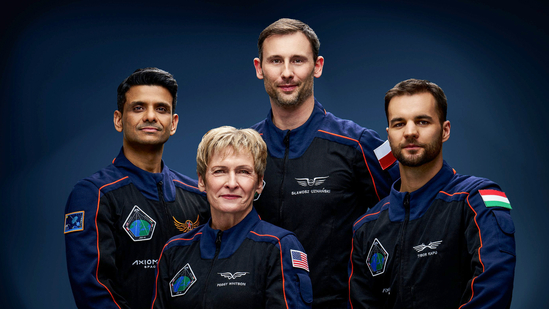Introduction
After a gap of 41 years, India is once again marking its presence in outer space with the launch of Group Captain Shubhanshu Shukla aboard the Axiom-4 mission. Set to launch on June 11, 2025, the mission is a monumental collaboration involving Axiom Space, NASA, and ISRO. With astronauts from India, Poland, Hungary, and the US onboard, this is a truly global effort in advancing scientific frontiers.
Who is Shubhanshu Shukla?
Shubhanshu Shukla is a decorated Indian Air Force officer and an astronaut trained extensively for India’s upcoming Gaganyaan mission. According to India Today, he will become the second Indian ever to travel into space, following Rakesh Sharma, who flew in 1984.
Mission Objective and Scientific Significance
The Axiom-4 mission is set to conduct 60 experiments aboard the International Space Station (ISS). Of these, Shukla is responsible for carrying out 7 experiments related to space health, material science, and microgravity. As noted by Prof. R.C. Kapoor, this mission is a significant opportunity for India to contribute meaningfully to international space research.
- Shukla will conduct 7 of the 60 scientific experiments
- Experiments cover biology, material behavior, and low-gravity response
- ISS orbits Earth at a height of about 400 km
Other Astronauts in the Mission
The mission will be led by Peggy Whitson, a veteran astronaut with the most cumulative days in space by any American. Other astronauts include:
- Slawosz Uznanski – ESA astronaut from Poland
- Tibor Kapu – Hungary’s second astronaut since 1980
Political and Strategic Importance
The mission also has diplomatic undertones, reflecting India’s rising influence in international scientific cooperation. As noted by experts, the launch showcases ISRO’s growing global partnerships, particularly with NASA and ESA. It also lays a foundation for India’s upcoming human spaceflight programs.
Launch Details and Timeline
Originally scheduled for June 10, the Axiom-4 mission has been rescheduled to June 11, 2025 due to weather conditions. The team is expected to reach the ISS approximately 28 hours after launch. The experiments will begin shortly after the astronauts arrive and acclimate to microgravity.
Legacy of Rakesh Sharma
Shukla’s journey inevitably draws parallels to Rakesh Sharma’s historic 1984 flight. Sharma stayed in space for eight days and conducted several experiments aboard Russia’s T-11 rocket. Now, four decades later, Shukla carries that legacy forward into a new era of space collaboration.
Conclusion
Shubhanshu Shukla’s inclusion in the Axiom-4 mission is not just a personal triumph, but a proud moment for India’s scientific community. As he joins astronauts from across the globe, the world watches the rise of India’s space ambitions with admiration. This mission is a testament to the power of international cooperation and a harbinger of India’s future beyond Earth.
Stay tuned for launch updates and mission highlights as India returns to the stars .


